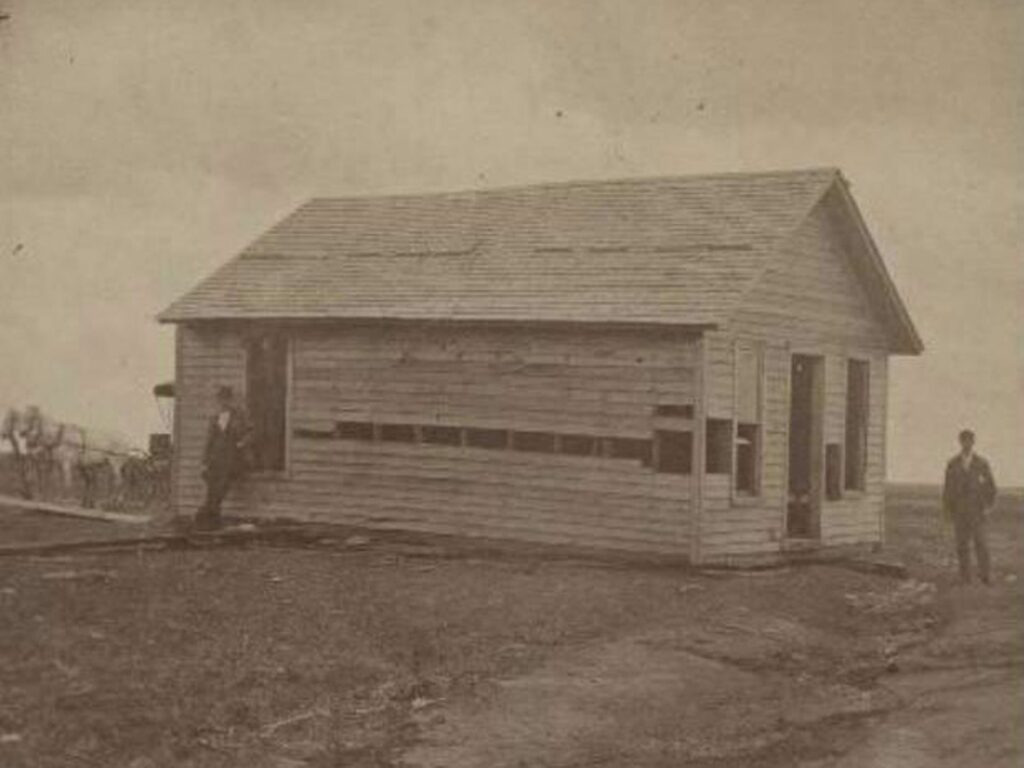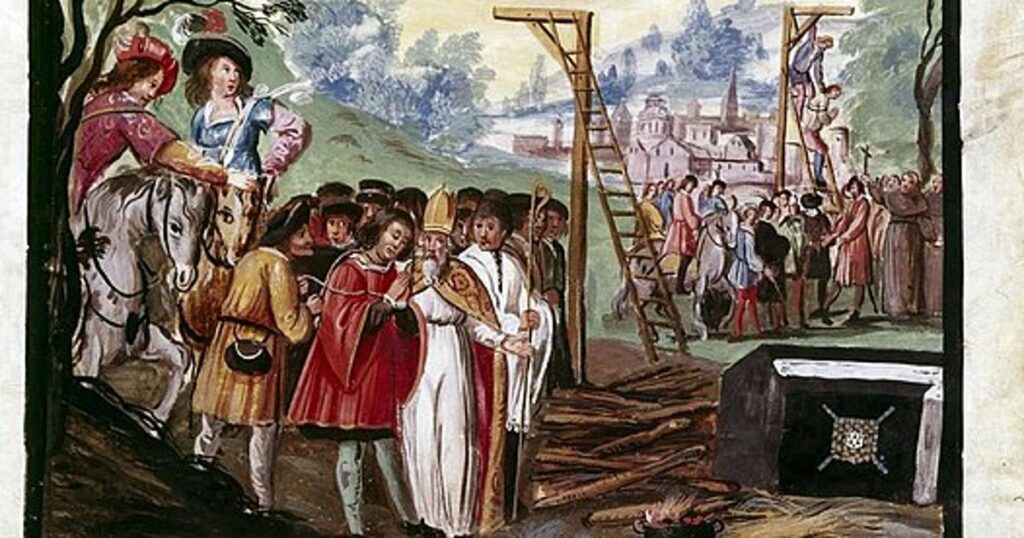At the heart of public interest in cold cases lies two drawing factors: the sickening behavior that depraved sociopaths are willing to go to, and the mystery that remains from unsolved cases.
But when the bodies of the missing people are found with no explanation for what caused their deaths, and the few existing testimonies muddle the circumstances even further, the tales get even more complicated and intriguing. Such as in the case of the Yuba County Five.
California is home to an endless amount of strange and mysterious stories. Few are as odd as the story of the Yuba County Five and the disappearance of Gary Dale Mathias.
The group consisted of five men who lived in Yuba County, near Sacramento in the 1970s. Each of these men was developmentally disabled or was considered a “slow learner.” Each man lived at home with his parents still.
Their parents collectively and fondly referred to the group as “the boys.” This shared living experience helped to unite the crew of men despite nearly a decade of age across the group
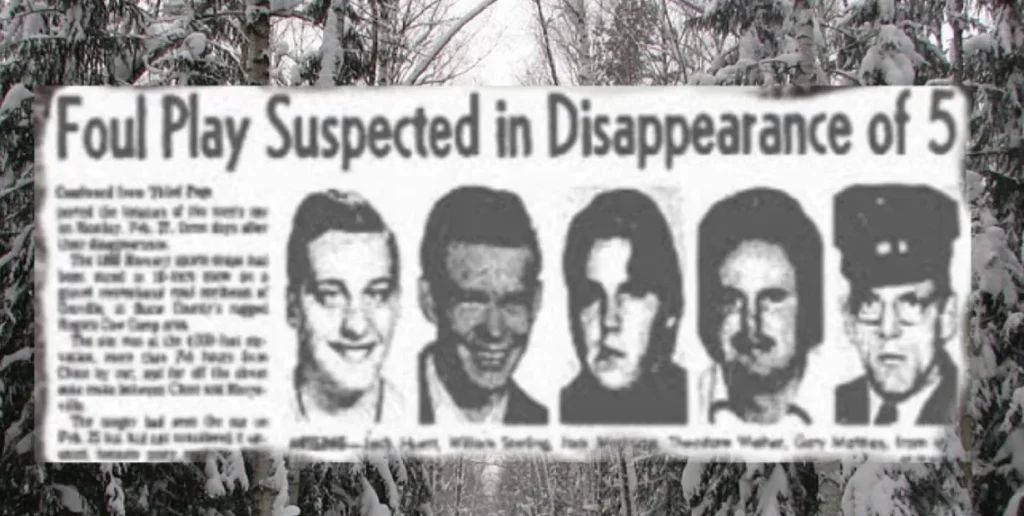
Who were the Yuba County Five?
Bill Sterling, who was 29, spent his days studying religion at a local library. He wanted to spread the word of God to those in the mental hospital.
He was close with Jack Madruga, who was 30. Jack was an Army veteran who was laid off in November of 1977 from his job as a busboy at a local restaurant.
Ted Weiher was a 32-year janitor until his parents convinced him that his disability was hindering his performance and that it was not worth continuing anymore.
Jack Huett, who was 24, was like a little brother to Weiher. He looked after Huett and helped him with day-to-day life.
Finally, there was Gary Dale Mathias, who was 25 and also an Army veteran. He had been stationed in West Germany in the 1970s and developed a drug problem.
This exacerbated the underlying schizophrenia that went undiagnosed until the mid-1970s when he was issued a psychiatric discharge. Upon returning to the States, he was prescribed Stellazine and Cogentin, two medications common for treating schizophrenia.
He often did not take his medicines, which led him to spiral into a rage and experience a psychotic break. His behaviors left him hospitalized in the care of the Veterans Administration often. But when he did take his medication, Mathias worked as a gardener for his grandfather’s business.
The Boys Love Basketball
These men spent a significant amount of time together. They were drawn together by their shared experience and a definitive love of basketball.
When they got together they often would play basketball, or when they wanted a break, they would watch basketball games.
A local recreational league, the Yuba City Vocational Rehabilitation Center, hosted games for the developmentally disabled. The men played on a team called the Gateway Gators.
In February of 1978, the Special Olympics was set to host a weeklong basketball tournament. The top prize of which was a free weeklong trip to Los Angeles.
The Boys Prepare for the Tournament
So the group began gathering themselves and preparing for the tournament. They were excited by the idea of taking a trip together and anxious about the competitive nature of the tournament.
Weiher scuffed his sneakers the week before and insisted his mother wash the shoes to maintain a good image. Mathias drove his parents crazy by constantly mentioning the competition and asserting that they needed to make sure he did not sleep in.
Then, in part to prepare for the competition and in part to ease their anxiety, the group decided to make a trip to Chico to watch a basketball game. The University of California – Davis basketball team was playing the Chico State team and the men wanted to learn from the players.
The five men piled into Madruga’s car, a 1969 Mercury Montego, as he and Mathias were the only ones who held a license. Madruga would regularly drive the group around, so they were used to taking trips together.
It was a fifty-mile drive, a short day trip. After UC Davis won the basketball game that night, the men all climbed back into the car and started making their way home.
They stopped at a local gas station for snacks and drinks, loading up for their drive home. It was just before the store was set to close at 10 pm, which the cashier later recalled upsetting her since she could not get started with her closing tasks.
What none of them knew was that this would be the last time anyone saw them alive.
The Men Go Missing
The next day, the men had still not returned to their homes in Yuba. This concerned all of their parents. None of the members of the group were the type to spend an unplanned night away from home, especially not right before their tournament game.
This led their parents to quickly contact the police, who began searching for the group immediately on the 25th of February. It was three days before the car the men had traveled in was found.
A park ranger at Plumas National Forest reported seeing the car. He claimed that he had actually seen it parked along the road a few days earlier.
He had written it off as normal because hundreds of visitors came to the forest during that time. However, after seeing the all-points bulletin out for the missing vehicle he remembered seeing it and called the police.
As the police arrived at the scene, questions about what could have happened to the men immediately began to arise. The car was found 2.5 hours from Chico, about 70 miles away, in the opposite direction of Yuba, high up in the mountains.
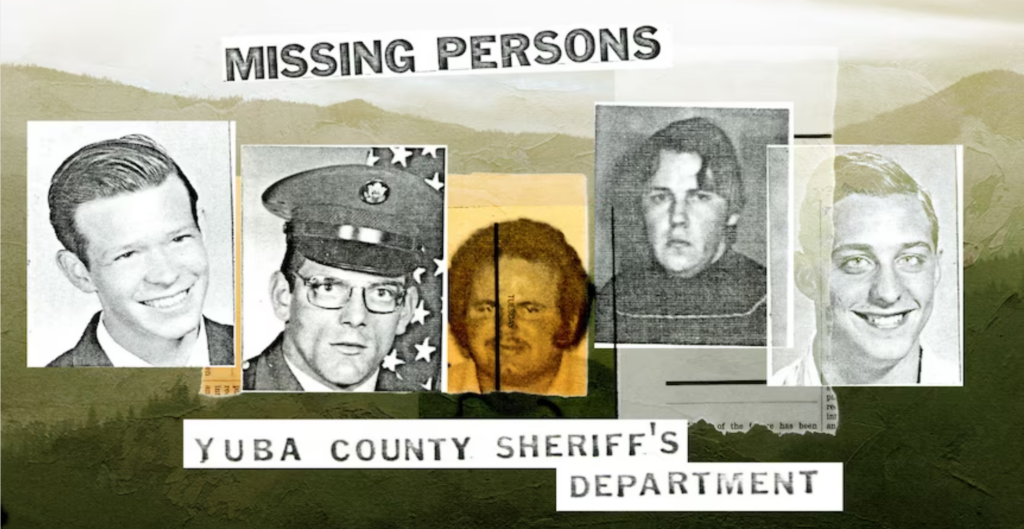
Suspicious Circumstances
The car looked like it had been abandoned shortly after they had left the gas station, where it was lightly stuck in the snow. Wrappers from the snacks the men bought were littered throughout the car, but there was no trace of any of the men.
There were no signs of a struggle and the car still had a quarter of a tank of gas left. Madruga’s parents pointed out that it was out of character for him to treat his car this way.
Since they had only planned to attend one basketball game in a day trip, the group was not prepared for the harsh conditions of the mountains.
The police searched the area for the men for five days before a massive snowstorm halted their efforts. The search teams almost lost their own men.
For five months there were few new developments in the case. It was too difficult to investigate in the snow, and after the snow melted nearly every sign of the group had been washed away.
Police were able to investigate the car further, but that only furthered the mystery. The undercarriage of the car was pristine.
This normally would not be abnormal. However, the location where the police found the car was up a long, uneven mountain road that would have dinged the car unless it had been driven with precision by someone who knew the road.
Since Madruga was unlikely to have been in that location before, police began to theorize someone else had driven the car up the mountain, although there was no evidence as to who that could have been.
Witness Testimonies
The second mysterious piece of evidence regarding the case was a testimony by Joseph Schons, given shortly after the group’s disappearance. Schons had been near where the car was found on the night that the group went missing.
He was visiting a cabin he owned on the mountain when his car also got stuck in the snow. As he got out to push his car he began to feel the early signs of a heart attack and returned to his car for safety.
The heart attack may have disoriented Schons, as his testimony was confusing. He claimed that he saw a car park behind his own, headlights shining, and heard people within it, including a woman holding a baby.
After Schons shouted out for help, the car drove away. He claims a second car did the same shortly after.
In the morning Schons was able to walk back down the mountain and get help.After this, he drove past Madruga’s car where he remembered hearing the voices come from.
Weiher’s parents claim that their son never would have left someone crying for help alone. Therefore, it is not likely Schons’ testimony was accurate.
Another report came from a woman in Brownville, a town 30 miles from where the car was abandoned. She claimed the men had come to the small shop she worked at the day after their disappearance in a red pickup truck. The shop owner backed up her testimony.
Police took their claim seriously because of the accurate descriptions they gave. They described Huett and Sterling as gathering snacks and using the telephone outside.
The parents confirmed the accuracy of the statement, claiming Huett hated using the phone and often had others answer for him. What possible motivation the men would have had to be in that vicinity was still unclear though.
Were the Yuba County 5 Ever Found?
In June of 1978, four out of the five families received a small amount of closure when some of the men’s bodies were located in the forest. They were located because as the snow thawed, a group of bikers stumbled across a trailer maintained by the park service that had a shattered window.
As they approached the trailer, located 20 miles away from Madruga’s car, they were met with a rancid smell that was later determined to be rotting flesh. Police arrived on the scene.
Over the next few days, they were able to locate the remains of everyone but Mathias. Madruga and Sterling were found 11 miles from the car.
Madruga’s body was partially consumed by wildlife while only bones remained of Sterling’s body. Huett’s backbone was discovered two days later under a bush, with his skull confirming his remains shortly after. All three men were determined to have died from hypothermia.
Weiher was identified as the decomposing body in the trailer which added even more mystery to the case. There was some evidence that Mathias, and possibly Huett, had been in the trailer at some point but Mathias was nowhere to be found.
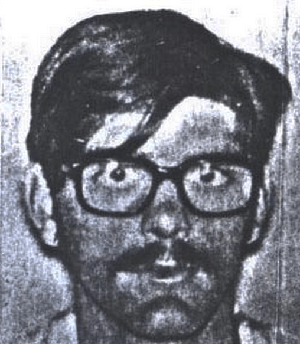
Piecing Together the Timeline
Weiher’s beard indicated he had lived three months after the group’s disappearance. He was surrounded by blankets and a few opened food cans. However, the larger portions of food and large stacks of wood for lighting fires in the trailer were untouched.
His family claimed that Weiher lacked common sense due to his disability. But they still were confused as to why none of the men had attempted to use the resources available to survive.
The cans of food that had been opened could only have been opened by Mathias, who knew how to use the can opener from his time in the military. Weiher’s shoes were also missing, and police assume Mathias took them to cover his frostbitten feet as he left the trailer.
Mathias was never located. The working theory was that the men had wandered into the woods after the car stopped working.
They followed the path of a snow vehicle. Once they entered the trailer, they did not use any of the supplies for fear of being accused of theft.
A less common theory is that Mathias, being off his medication again, somehow turned on his friends and killed them. Unless Mathias is found alive though, the world will never know what happened to the Yuba County 5.
References
Gorney, Cynthia. “5 ‘Boys’ Who Never Came Back.”The Washington Post, July 6, 1978. https://www.washingtonpost.com/archive/lifestyle/1978/07/06/5-boys-who-never-come-back/f8b30b11-baeb-4351-89f3-26456a76a4fb/?utm_term=.51968ec259af.
“Yuba County 5.” 1079: The Overwhelming Force of Dyatlov Pass, December 8, 2017. https://dyatlovpass.com/yuba-county-five.
